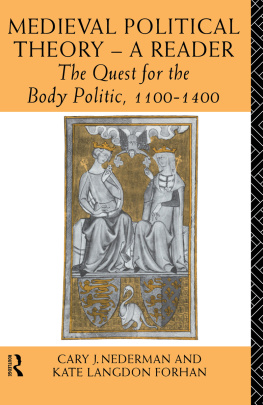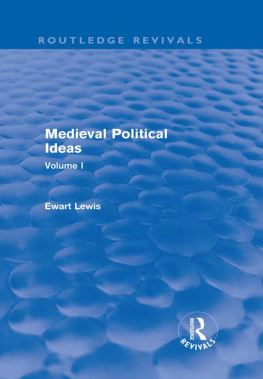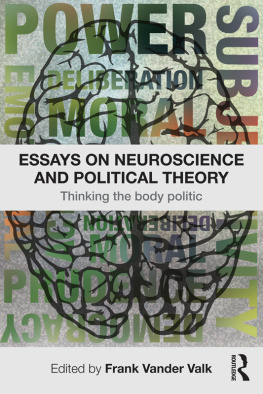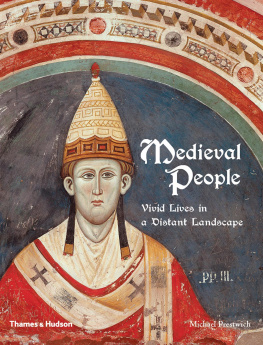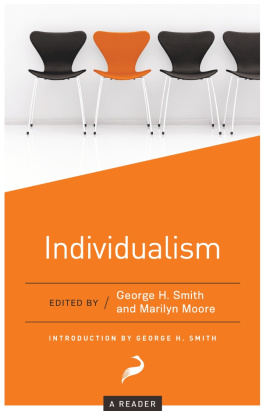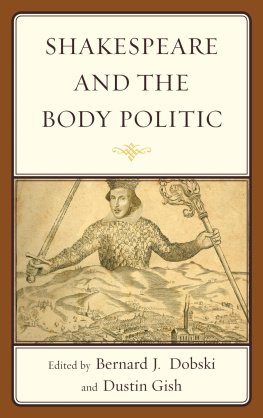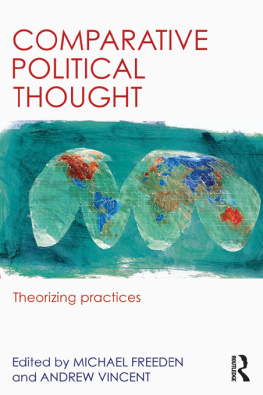MEDIEVAL POLITICAL THEORY A READER
This anthology contains new translations of a selection of important and revealing works of medieval political theory. It includes both well known figures such as Thomas Aquinas and John of Salisbury and lesser known figures, including two women, Christine de Pizan and Marie de France.
Gary Nederman and Kate Forhan have chosen their selections on the basis of intellectual importance, geographical coverage and representativeness. The volume encompasses texts from the Latinized regions of Western Europe, including England, France, Germany and Italy, and gives expression to a wide range of medieval perspectives on politics.
A general discussion of medieval political culture introduces the volume. In this, the authors aim to identify the main historical, religious and philosophical assumptions underpinning the medieval political tradition.
This textbook has been written for students of political theory. Its aim is to expose them directly to the texts without enmeshing them in complexities beyond the scope of an introductory course. In addition, it may readily be used by students of medieval history and philosophy and of religious studies.
Cary J. Nederman is Assistant Professor of Political Science at The University of Arizona. He has written widely on the history of Western political theory.
Kate Langdon Forhan is Associate Professor of Political Science at Siena College, New York. She has written a number of articles on the development of medieval political thought.
MEDIEVAL POLITICAL THEORY A READER
The quest for the body politic, 11001400
Edited by
Cary J. Nederman
and
Kate Langdon Forhan
First published 1993
by Routledge
Published 2013 by Routledge
2 Park Square, Milton Park, Abingdon, Oxon OX14 4RN
Simultaneously published in the USA and Canada
by Routledge
711 Third Avenue, New York, NY, 10017, USA
Routledge is an imprint of the Taylor & Francis Group, an informa business
1993 Cary J. Nederman and Kate Langdon
Forhan this selection and introductory material
Typeset in Garamond by LaserScript, Mitcham, Surrey
All rights reserved. No part of this book may be reprinted or reproduced or utilized in any form or by an electronic, mechanical, or other means, now known or hereafter invented, including photocopying and recording, or in any information storage or retrieval system, without permission in writing from the publishers.
British Library Cataloguing in Publication Data
A catalogue reference for this book is available from the British Library
Library of Congress Cataloging in Publication Data
Medieval political theory: a reader: the quest for the body politic, 11001400/edited by Cary J. Nederman and Kate Langdon Forhan.
p. cm.
Includes bibliographical references and index.
1. Political science Europe History. 2. Political science Early works to 1800. I. Nederman, Cary J. II. Forhan, Kate Langdon, 1949
JA82.U4 1993
CIP
ISBN 13: 978-0-415-06489-7 (pbk)
For Arlen, Mitchell and Daniel
and
for Joseph, Langdon and Nicholas
CONTENTS
Translated by Kate Forhan
Translated by Kate Forhan
Translated by Cary Nederman
Translated by Cary Nederman
Translated by Kate Forhan
Translated by Susan Ziller, Cary Nederman and Kate Forhan
Translated by Kate Forhan
Translated by Cary Nederman
Translated by Kate Forhan
Translated by Cary Nederman
Translated by Cary Nederman
Translated by Cary Nederman
Translated by Cary Nederman
Translated by Kate Forhan
In the popular imagination, Western Europe during the Middle Ages is often equated with the Dark Ages, a period wherein culture and reason gave way to social disintegration and the excesses of mystical faith. This characterization of the Middle Ages might seem especially appropriate to the study of political theory. After all, unlike the ancients, medieval authors seldom produced great systematic analyses of politics or philosophically sophisticated defences of political ideals. And unlike political theory in the modern age, the Middle Ages yielded none of the intellectual constructs from which arise contemporary ideological and intellectual disputes. Or so we assume.
In part, this unfavourable estimation comes from a failure to realize that historical periodization involves judgements of value which are themselves political or ideological. The very term Middle Ages stamps an entire civilization as a kind of interregnum between what was really important, namely, the classical period, usually meaning Plato and Aristotle, and the moderns. Yet reality is much more muddled than such tidy categories would imply. In fact, our civilization, like any other, is inextricably linked with the past, however despised or revered. The great twelfth-century scholar and churchman John of Salisbury reminds us that we, like the students of any age, can see farther only because we are standing on the shoulders of the giants who came before us.
Individuals born during the period we term medieval continued to think and write about political questions and problems: their texts abound in archives and libraries. Moreover, the theoretical observations generated during the Middle Ages form an important contribution to the Western tradition of political thought. Medieval theorists repeatedly addressed many of the issues which scholars regard as perennial elements of the Wests political identity. The intellectual in the Middle Ages, no less than in other eras, wanted to discover the qualities of the good society and the proper roles and functions of the individual within that society. He or she was concerned with specific problems found within those societies problems of violence, of corruption, and of the abuse of authority, for example. Medieval scholars sought to expound and defend doctrines and ideas unknown to previous generations and to make sense of them in the light of the past. The hegemony of a revealed Christian religion, the persistence of pagan classical texts and ideas, and the development of a feudal social and political structure all of these factors shaped the distinctive theoretical outlook on politics typical of writers during the Middle Ages. In turn, it ought also to be emphasized that numerous attributes of medieval political practice and thought exercised a decisive influence upon the more recent history of the West. Principles of law, government, liberty and rights so cherished by modern citizens may be traced to medieval sources.
The primary goal of the present volume is to disseminate to a non-specialist audience a representative sampling of the political ideas and arguments which theorists of the Middle Ages bequeathed to the West. The editors preference has been to include lengthy selections from texts in order that students and scholars may have collected together in a basic sourcebook the masterpieces and classics of medieval political thought. But we have also included shorter excerpts from less well-known authors, including women, that have never before appeared in translation. It is also our belief that a thorough comprehension of the theories of politics arising from the Middle Ages requires an appreciation of the political culture in which medieval authors were immersed. Thus, we begin with a brief introductory survey of the intellectual, ideological and historical context which animated the political reflections of Western Europe during the Middle Ages.

